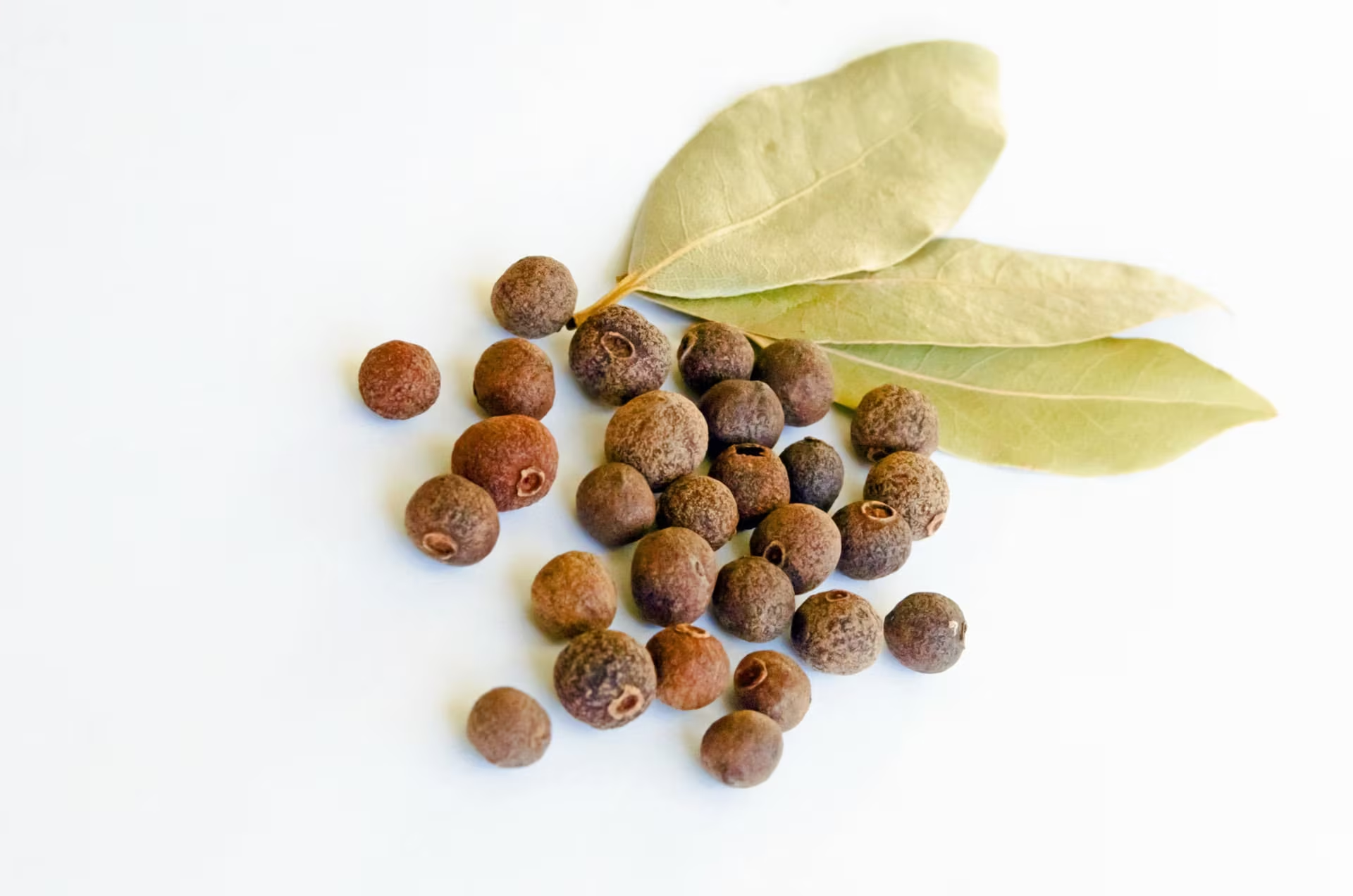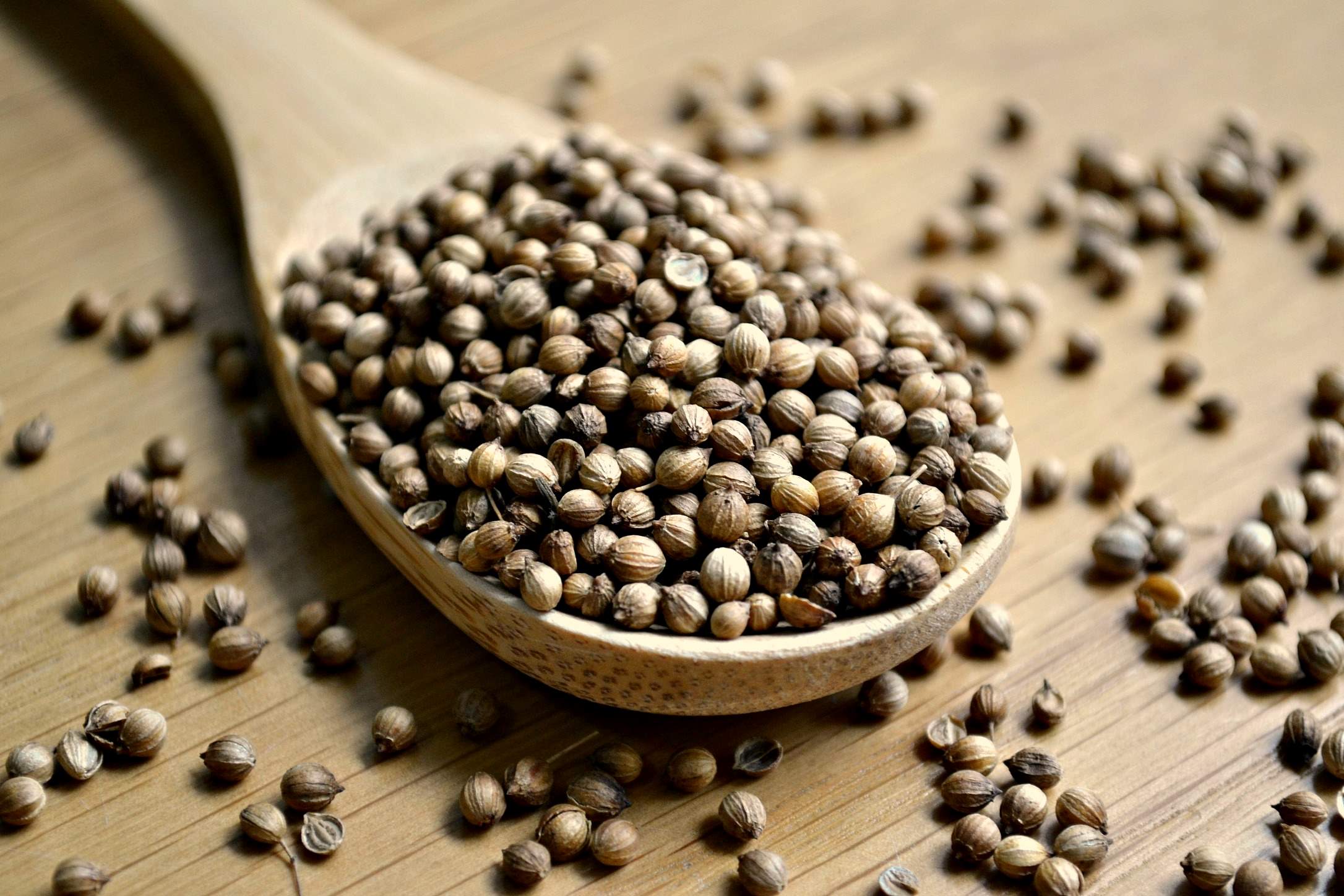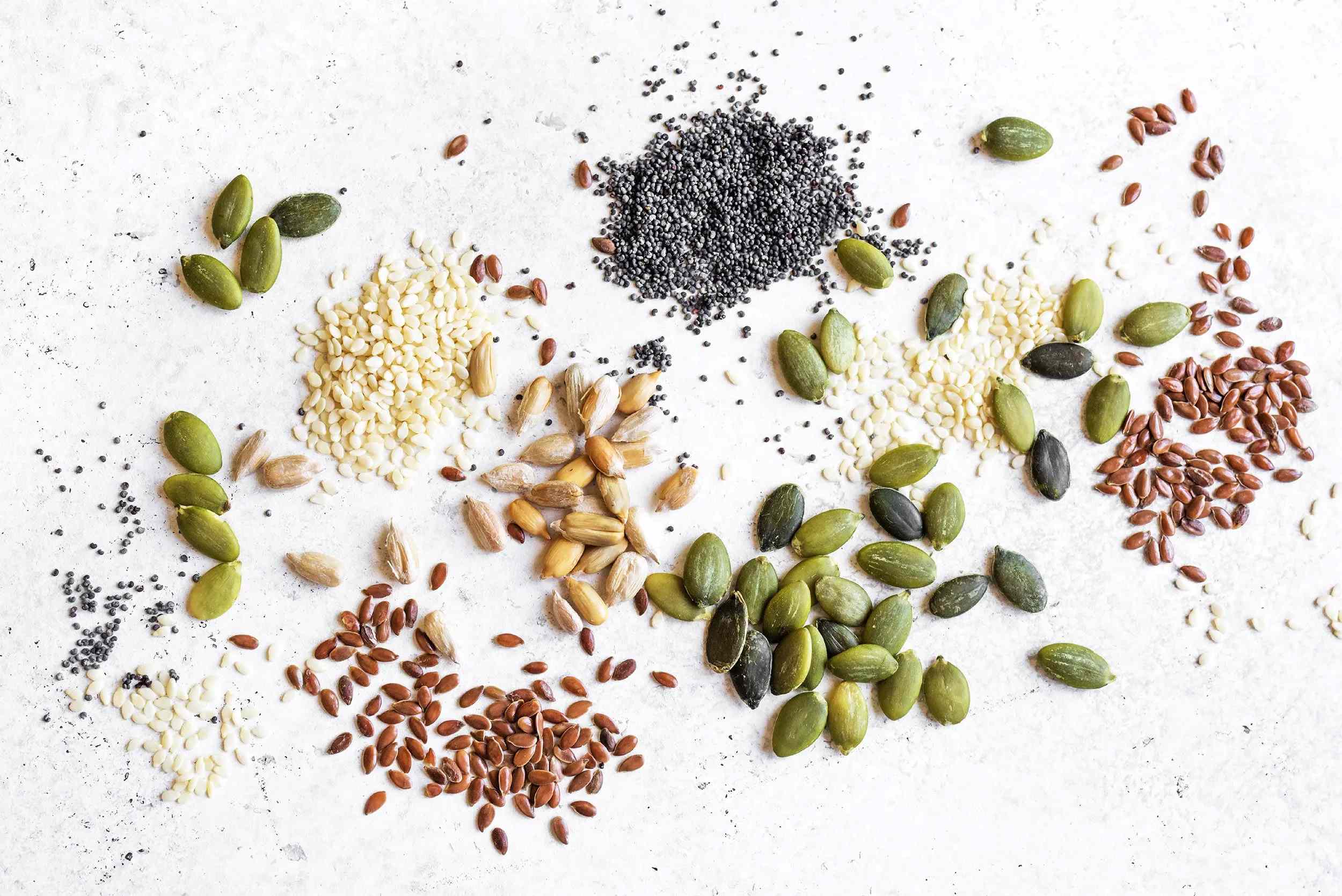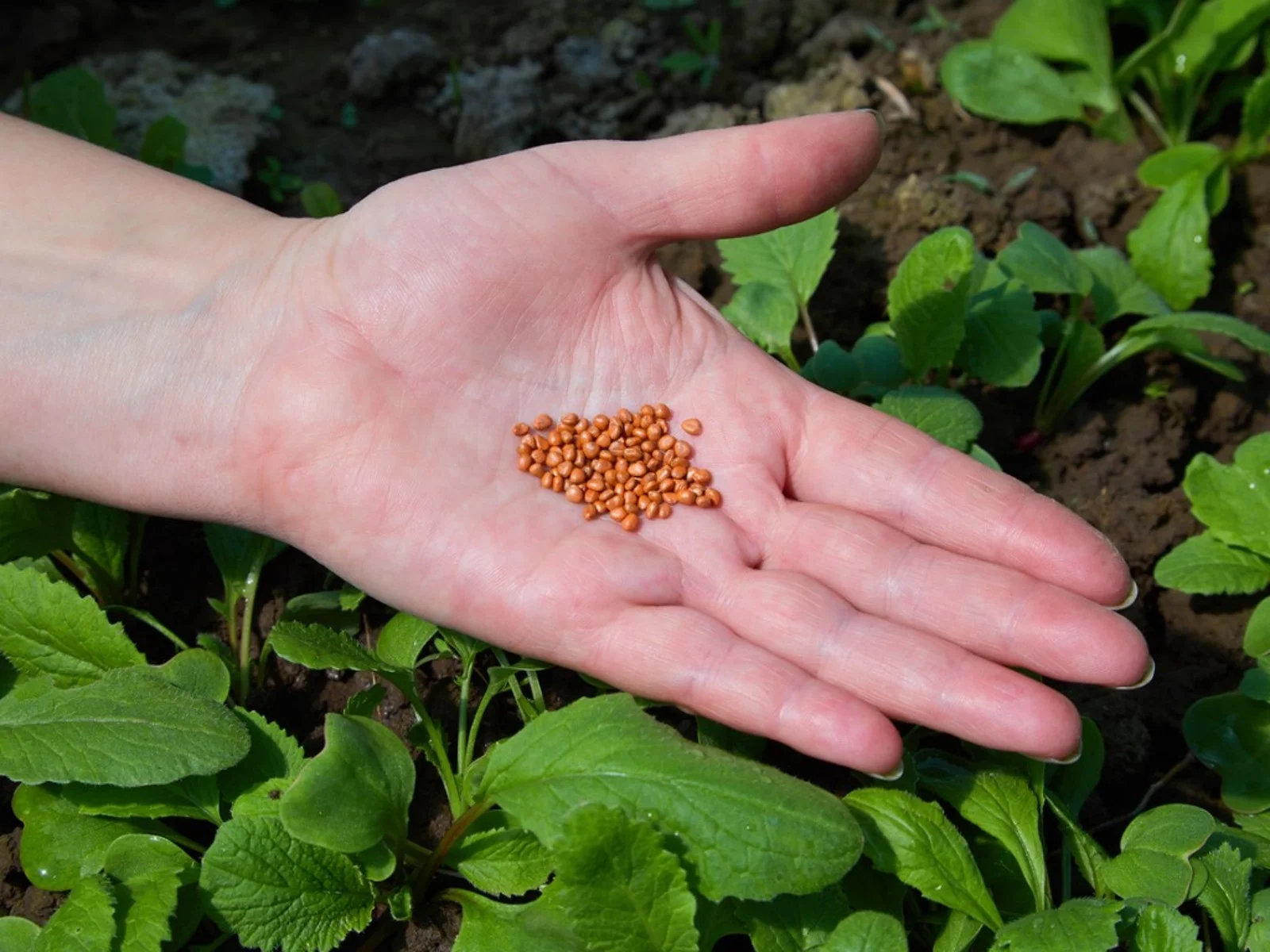Home>Types of Gardening>Edible Gardening>What Are Black Sesame Seeds
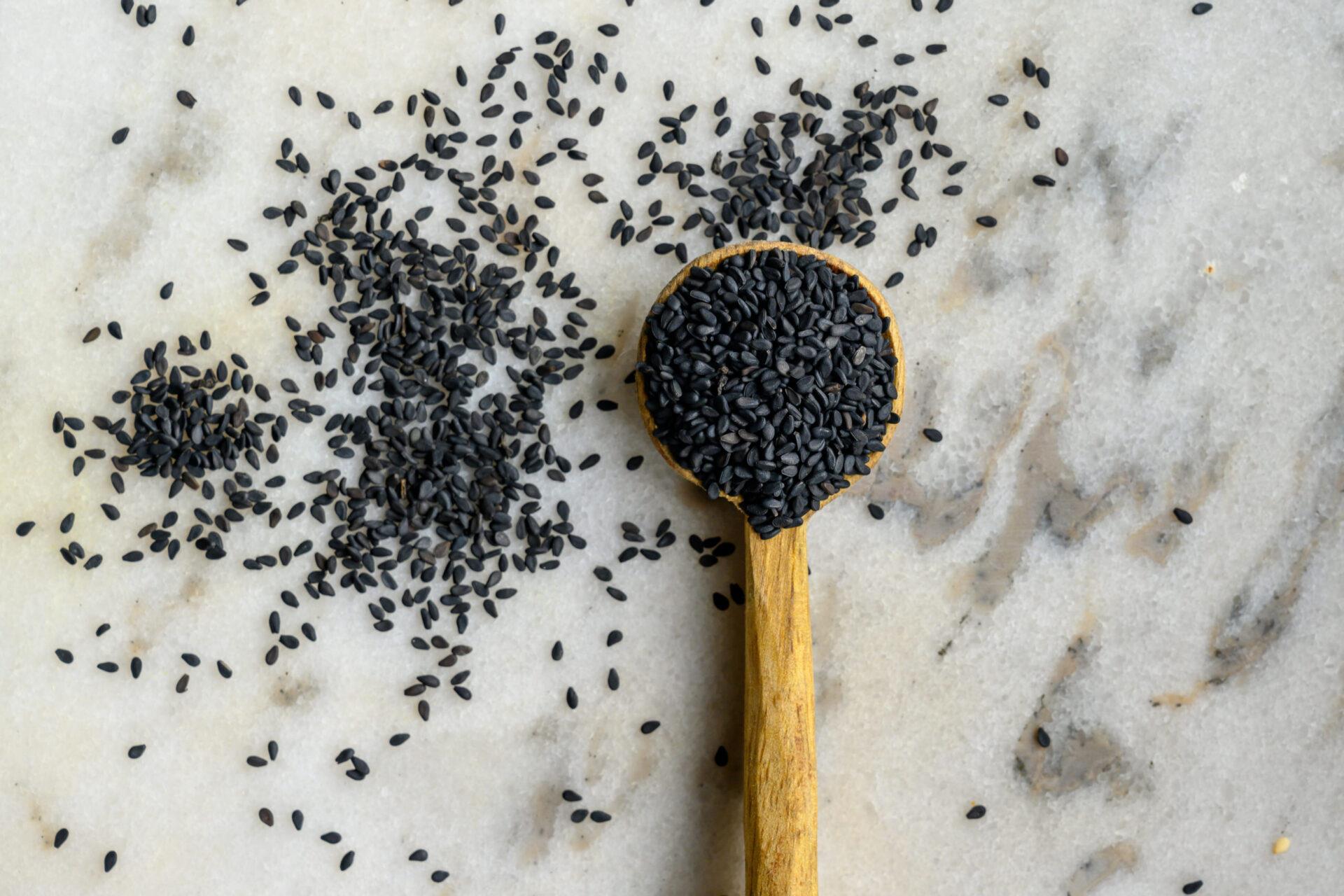

Edible Gardening
What Are Black Sesame Seeds
Modified: January 22, 2024
Discover the benefits of black sesame seeds in edible gardening. Learn what black sesame seeds are and how to incorporate them into your garden for a nutritious and flavorful addition.
(Many of the links in this article redirect to a specific reviewed product. Your purchase of these products through affiliate links helps to generate commission for Chicagolandgardening.com, at no extra cost. Learn more)
Table of Contents
Introduction
Welcome to the fascinating world of black sesame seeds! Whether you’re a gardening enthusiast, a health-conscious individual, or simply someone who loves experimenting with flavors in the kitchen, black sesame seeds are sure to pique your interest. These tiny, glossy seeds, with their deep, rich color, have been prized for centuries for their unique flavor, nutritional benefits, and versatile culinary uses.
Black sesame seeds, scientifically known as Sesamum indicum, have a long history rooted in Asian cuisine and traditional medicine. These seeds are a powerhouse of nutrients and possess a distinctive nutty flavor that adds depth and complexity to a variety of dishes.
But what exactly makes black sesame seeds so special? What are their nutritional benefits, and how can they be incorporated into our daily lives? In this comprehensive guide, we’ll explore the origin, nutritional profile, health benefits, culinary uses, and precautions associated with black sesame seeds.
So, grab a cup of tea, sit back, and let’s dive into the world of black sesame seeds!
Origin of Black Sesame Seeds
Black sesame seeds have a rich history that dates back thousands of years. Originating in the fertile lands of India and Africa, these seeds were first cultivated and used for their culinary and medicinal properties.
It is believed that black sesame seeds were introduced to Asia over 2,000 years ago, where they quickly became a staple in traditional Chinese, Indian, and Japanese cuisines. Ancient texts from China and India mention the cultivation and consumption of sesame seeds, highlighting their importance in both culinary and medicinal practices.
The unique black color of these seeds is a result of a natural pigment called melanin. This pigment not only gives black sesame seeds their distinctive appearance but also contributes to their nutritional content. The black outer shell protects the seeds from the sun and helps to retain their flavor and nutrients.
Today, black sesame seeds are widely cultivated in various parts of Asia, including China, India, Japan, and Korea. These regions have the ideal climate and soil conditions for growing sesame plants, ensuring the availability of fresh and high-quality black sesame seeds throughout the year.
Black sesame seeds have become increasingly popular in recent years, not only in Asia but around the world. Their unique taste, nutritional benefits, and versatility in the kitchen have made them a sought-after ingredient by chefs, health enthusiasts, and home cooks alike.
So, the next time you enjoy a dish with the wonderful flavor and texture of black sesame seeds, imagine the journey these little seeds have taken, from their humble beginnings in India and Africa to becoming a beloved ingredient in kitchens all over the globe.
Nutritional Profile
Black sesame seeds are not only flavorful but also packed with a wide range of essential nutrients. These seeds are a nutritional powerhouse, offering a variety of vitamins, minerals, healthy fats, and antioxidants.
Here is a breakdown of the key nutrients found in black sesame seeds:
- Protein: Black sesame seeds are a great source of plant-based protein. They contain all nine essential amino acids, making them a complete protein source for vegans and vegetarians.
- Dietary Fiber: These seeds are rich in dietary fiber, which aids in digestion, helps maintain bowel regularity, and promotes satiety, making you feel fuller for longer.
- Healthy Fats: Black sesame seeds are abundant in healthy fats, including monounsaturated and polyunsaturated fats. These fats contribute to heart health, regulate cholesterol levels, and support brain function.
- Minerals: Black sesame seeds are a good source of essential minerals such as calcium, iron, magnesium, zinc, and copper. These minerals play vital roles in bone health, energy production, immune function, and blood clotting.
- Vitamins: These seeds are rich in various vitamins, including vitamin B1 (thiamine), vitamin E, and folate. These vitamins support energy metabolism, promote healthy skin, and protect against cellular damage from free radicals.
- Antioxidants: Black sesame seeds contain potent antioxidants, such as sesamol and sesamin, which help neutralize harmful free radicals and reduce inflammation in the body.
It’s important to note that while black sesame seeds offer many nutritional benefits, they are also calorie-dense. Therefore, moderation is key when incorporating them into your diet, especially if you’re watching your calorie intake.
Now that we know about the impressive nutritional profile of black sesame seeds, let’s explore the multitude of health benefits they offer.
Health Benefits of Black Sesame Seeds
Black sesame seeds have long been celebrated for their numerous health benefits. From supporting heart health to improving digestion, these tiny seeds offer a range of advantages for overall well-being. Let’s explore some of the key benefits:
- Rich in Antioxidants: The antioxidants present in black sesame seeds help protect the body against oxidative stress and reduce the risk of chronic diseases, including heart disease, cancer, and diabetes.
- Heart Health: The healthy fats found in black sesame seeds, such as omega-3 and omega-6 fatty acids, contribute to heart health by reducing cholesterol levels, improving blood pressure, and promoting healthy blood vessel function.
- Bone Health: Black sesame seeds are an excellent source of calcium, magnesium, and zinc, all of which are vital for maintaining strong and healthy bones. Regular consumption of these seeds can help prevent conditions like osteoporosis.
- Brain Function: The high levels of vitamin E and other antioxidants in black sesame seeds support brain health and may help protect against age-related cognitive decline.
- Digestive Health: The fiber content in black sesame seeds promotes healthy digestion, prevents constipation, and supports a healthy gut microbiome.
- Boosts Immunity: Black sesame seeds contain essential minerals like zinc and copper, which help strengthen the immune system and support the body’s ability to fight off infections.
- Energy Boost: The combination of healthy fats, protein, and nutrients in black sesame seeds provides a natural energy boost, making them a great addition to your pre-workout or midday snack.
It’s important to remember that black sesame seeds should be consumed as part of a balanced diet and not as a standalone solution for any health condition. Incorporating these seeds into your meals and snacks can contribute to overall health and well-being.
Now that we understand the health benefits of black sesame seeds, let’s explore their delightful culinary uses.
Culinary Uses of Black Sesame Seeds
Black sesame seeds are not only nutritious but also add a delightful touch to a variety of dishes. Their bold, nutty flavor and unique color make them a versatile ingredient in both sweet and savory recipes. Here are some popular culinary uses of black sesame seeds:
- Baking: Black sesame seeds can be incorporated into baked goods such as bread, cookies, cakes, and muffins. They add a subtle nutty flavor and a visually appealing speckled appearance to your favorite treats.
- Toppings: Sprinkle black sesame seeds on top of salads, roasted vegetables, stir-fries, and grain bowls to add a crunchy texture and nutty flavor. They also make a great garnish for soups and noodles.
- Sauces and Dips: Ground black sesame seeds can be used to make delicious tahini, a paste widely used in Middle Eastern cuisine. Tahini can be enjoyed as a dip, added to dressings, or used as a base for savory sauces.
- Asian Cuisine: Black sesame seeds are commonly used in Asian cuisine. They are an essential ingredient in dishes like black sesame soup, black sesame paste, and black sesame dumplings, adding depth and richness to these traditional delicacies.
- Beverages: Ground black sesame seeds can be blended into smoothies, milkshakes, and homemade nut milks, adding a unique flavor and nutritional boost to your favorite beverages.
- Snacks: Roasted black sesame seeds can be enjoyed as a standalone snack or mixed with other nuts and dried fruits to create a nutritious trail mix. You can also use them as a coating for energy balls or sprinkle them over popcorn for a tasty and healthy snack.
When using black sesame seeds in recipes, it’s recommended to lightly toast them beforehand to enhance their flavor and aroma. Simply place the seeds in a dry skillet over medium heat and toast them for a few minutes until they become fragrant.
With their versatility and distinct taste, black sesame seeds can elevate the flavors of various dishes while providing a visually appealing element to your culinary creations.
Now that we’re familiar with the culinary uses of black sesame seeds, let’s explore some precautions and potential side effects associated with their consumption.
Side Effects and Precautions
While black sesame seeds are generally safe for consumption, it’s important to be aware of potential side effects and take necessary precautions, especially if you have specific health conditions or allergies. Here are some considerations to keep in mind:
- Allergies: Some individuals may have an allergic reaction to sesame seeds, including black sesame seeds. If you have a known allergy to sesame, it’s best to avoid consuming them to prevent any adverse reactions.
- Oxalate Content: Black sesame seeds, like other seeds and nuts, contain oxalates, which can contribute to the formation of kidney stones in susceptible individuals. If you have a history of kidney stones or are prone to developing them, it’s advisable to moderate your intake of black sesame seeds.
- Fat and Calorie Content: While the healthy fats in black sesame seeds offer numerous benefits, they are also calorie-dense. If you’re watching your calorie intake, it’s important to consume black sesame seeds in moderation to avoid excessive calorie consumption.
- Storage: To maintain the freshness and quality of black sesame seeds, store them in an airtight container in a cool, dark place. Proper storage helps prevent the seeds from becoming rancid.
- Pregnancy and Breastfeeding: If you are pregnant or breastfeeding, it’s always recommended to consult with your healthcare provider before adding black sesame seeds to your diet to ensure it is safe for you and your baby.
As with any food, it’s essential to listen to your body and observe how it responds to black sesame seeds. If you experience any adverse effects or discomfort after consuming them, it’s best to discontinue their use and seek medical advice if necessary.
Keep in mind that the information provided here is for general purposes only and should not replace professional medical advice. If you have any concerns or specific health conditions, consult with a healthcare professional before making any significant dietary changes.
With the necessary precautions in mind, let’s conclude our exploration of black sesame seeds.
Conclusion
Black sesame seeds are more than just a flavorful ingredient; they possess a rich history, a diverse nutritional profile, and a multitude of health benefits. Originating from India and Africa, these tiny seeds have made their way into the kitchens of chefs, home cooks, and health enthusiasts around the world.
From a nutritional standpoint, black sesame seeds are a powerhouse of nutrients. They are an excellent source of protein, dietary fiber, healthy fats, minerals, vitamins, and antioxidants. Incorporating them into your diet can support heart health, bone health, brain function, digestion, immune system, and provide a natural energy boost.
Culinary-wise, black sesame seeds offer versatility and a distinct nutty flavor. They can be used in baking, as a topping, in sauces and dips, and feature prominently in Asian cuisine. Their delightful flavor and visually striking appearance make them a popular choice for enhancing the taste and presentation of a wide range of dishes.
However, it’s important to exercise caution, especially for those with allergies, kidney stone concerns, or caloric restrictions. Furthermore, storage and proper consumption should be considered. Consultation with a healthcare provider is advised for pregnant or breastfeeding individuals.
Incorporating black sesame seeds into your diet can elevate both the flavor and nutrition of your meals. So, the next time you’re looking to add a touch of uniqueness to your culinary creations, reach for black sesame seeds and explore the wonders they have to offer.



